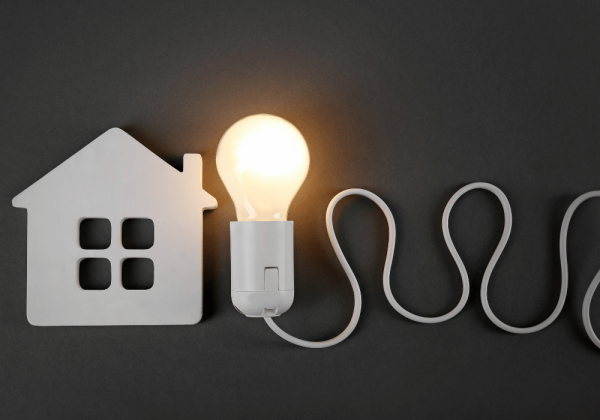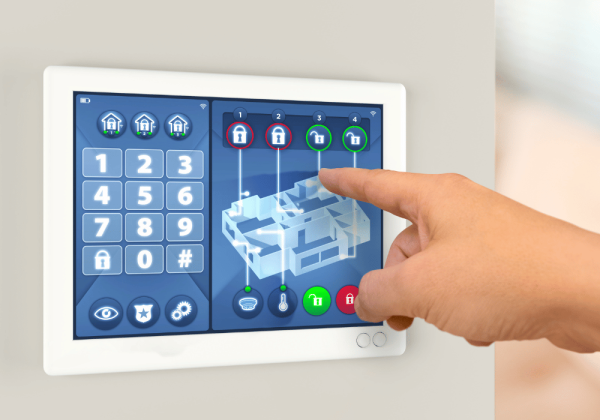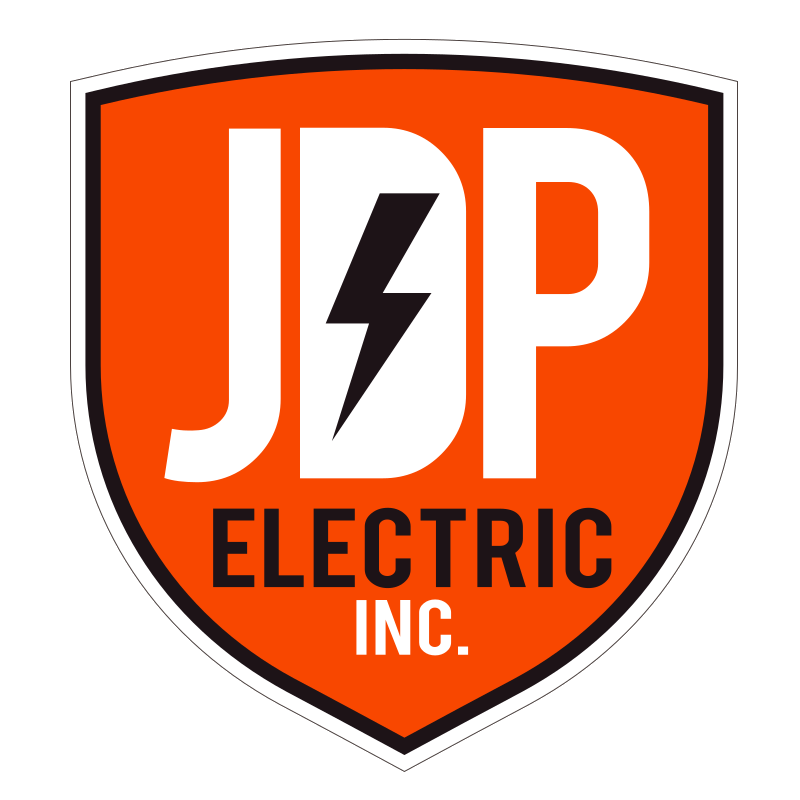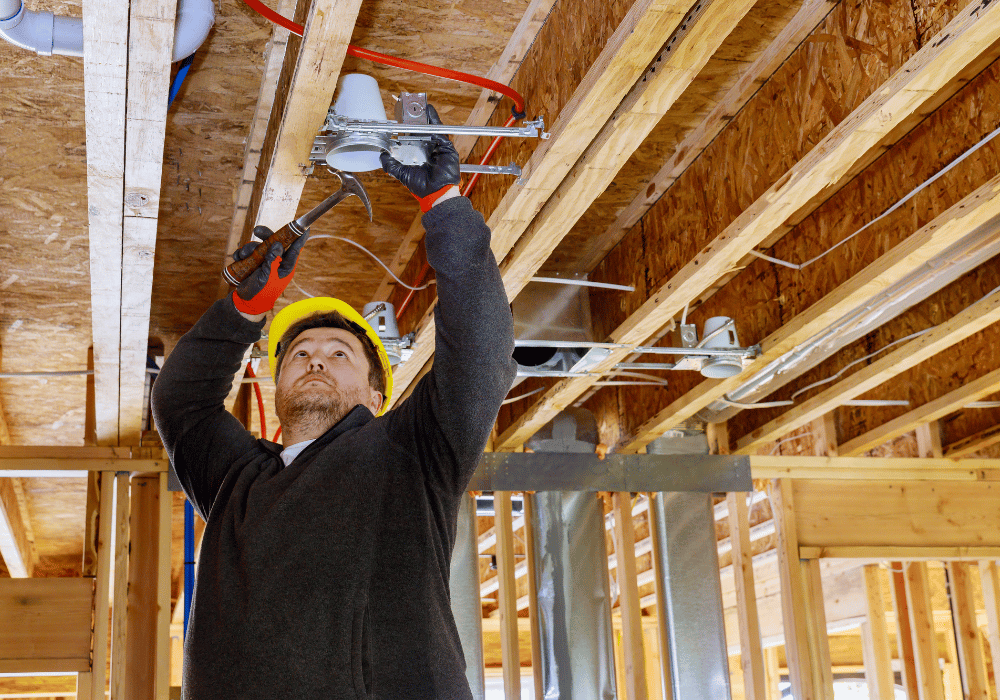Building a new home is an exciting process that involves countless decisions, and one of the most critical aspects is the electrical system. Proper electrical installations not only ensure the safety of your home but also maximize its functionality and efficiency. To help you get started, we’ve outlined the top seven electrical installations every new home needs. From lighting to future-proofing for technology, these essentials will make sure your home is equipped for modern living.
1. Comprehensive Lighting Plan
 A well-thought-out lighting plan is essential for creating a functional and inviting atmosphere in your home. Lighting goes beyond simply placing fixtures in each room; it involves layering light and optimizing placement to suit each area’s purpose.
A well-thought-out lighting plan is essential for creating a functional and inviting atmosphere in your home. Lighting goes beyond simply placing fixtures in each room; it involves layering light and optimizing placement to suit each area’s purpose.
Start with ambient lighting, such as ceiling fixtures or recessed lights, to provide overall illumination. Task lighting comes next, offering focused light for workspaces like kitchen counters, desks, or bathroom vanities. Don’t forget accent lighting, which adds a decorative touch by highlighting features like artwork or architectural details.
When choosing lighting, consider energy-efficient LED options. These bulbs last longer and consume less power, reducing energy costs. Dimmer switches are another excellent addition, allowing you to adjust brightness according to your needs and improve energy savings.
2. Adequate Electrical Outlets
No one likes hunting for an outlet when they need to charge their phone or plug in a device. Installing enough electrical outlets throughout your home is a must for convenience and efficiency.
Plan to have at least two outlets per room, with additional ones in high-use spaces like the kitchen, living room, and home office. Include specialized outlets where needed, such as ground-fault circuit interrupters (GFCIs) in bathrooms and kitchens, to prevent electrical shocks near water sources.
Smart outlets are also worth considering. These allow remote control of connected devices through smartphone apps, letting you turn off electronics or schedule appliances with ease. Including USB outlets is another modern convenience, as they simplify charging for phones, tablets, and other devices without bulky adapters.
3. Energy-Efficient Appliances
Your home’s electrical system should be designed to support energy-efficient appliances. Investing in appliances with high energy-efficiency ratings reduces power usage, helping you save on utility bills while also minimizing environmental impact.
For instance, ENERGY STAR-certified refrigerators, dishwashers, and HVAC systems rank among the most efficient options on the market. These devices use advanced technologies that require less electricity, such as programmable thermostats in HVAC systems that allow precise temperature control.
Make sure your home’s wiring and circuits can handle the power demands of these appliances. Overloading circuits can lead to frequent breaker trips or, worse, potential fire hazards. Properly planning your home’s electrical needs during construction saves headaches in the future.
4. Smart Home Automation Systems
Smart home technology has quickly become a standard feature in modern homes. By incorporating home automation systems during construction, you can integrate advanced conveniences that adapt to your lifestyle.
Key systems include smart lighting, automated thermostats, and voice-controlled hubs. Security features such as smart locks, video doorbells, and surveillance systems are additional options that enhance your home’s safety and convenience.
Centralized smart hubs allow seamless control through apps or voice commands, letting you monitor and manage your home systems from anywhere. Designing your electrical installations with this integration in mind ensures a cohesive and future-ready setup, saving time and expense later on.
5. Home Security Features
 Every new home needs robust security systems to protect its occupants and belongings. Electrical installations for security include surveillance cameras, motion-sensor lighting, and alarm systems that deter intruders.
Every new home needs robust security systems to protect its occupants and belongings. Electrical installations for security include surveillance cameras, motion-sensor lighting, and alarm systems that deter intruders.
Surveillance cameras placed at entry points, like doors and windows, provide real-time monitoring. Integrating cameras with your home’s Wi-Fi enables remote access to live video feeds via smartphones, so you can check on your home even when you’re away.
Motion-sensor lights are another valuable feature that enhances security. By illuminating areas like driveways, porches, or backyards when movement is detected, they deter potential threats and provide visibility in dark spaces. Customized security installations ensure your peace of mind while enhancing your home’s value.
6. Backup Power Solutions
Power outages are unpredictable, but proper planning keeps your home running even during disruptions. Backup power solutions, such as generators or battery storage systems, ensure you won’t be left in the dark during storms or grid failures.
A whole-home generator automatically powers critical appliances like refrigerators, medical devices, or heating systems when the electricity goes out. For a more sustainable option, battery storage paired with solar panels can provide backup power while also reducing reliance on the grid.
When installing backup solutions, consult an electrician to evaluate your home’s energy demands and recommend the right equipment. Proper integration is crucial to ensuring these systems operate seamlessly when needed.
7. Future-Proof Wiring
While it’s impossible to predict all future advances in technology, future-proofing your home’s electrical wiring gives you a head start. Structured wiring systems that support high-speed internet, home networking, and media streaming allow your home to meet evolving technological demands.
For instance, installing Cat6 Ethernet cables provides faster speeds and less interference than Wi-Fi alone, which is ideal for smart home devices or home offices. Pre-wiring for surround sound speakers in common areas or outdoor spaces simplifies entertainment setups later.
Additionally, consider wiring for electric vehicle (EV) chargers in your garage. Even if you don’t currently own an EV, adding this infrastructure during construction ensures your home is ready for the growing trend of green transportation.
Electrical installations are a foundation of your new home’s functionality, safety, and comfort. By investing in thoughtful planning and modern solutions, you can create a space that aligns with your family’s needs and adapts to future advancements. From sufficient outlets to smart home systems, each installation contributes to a cohesive and efficient electrical system. Partnering with a licensed electrician ensures all components are installed to code and optimized for performance. With the right support, your new home will be powered for years to come, providing a safe and convenient environment for everyone who lives there.

